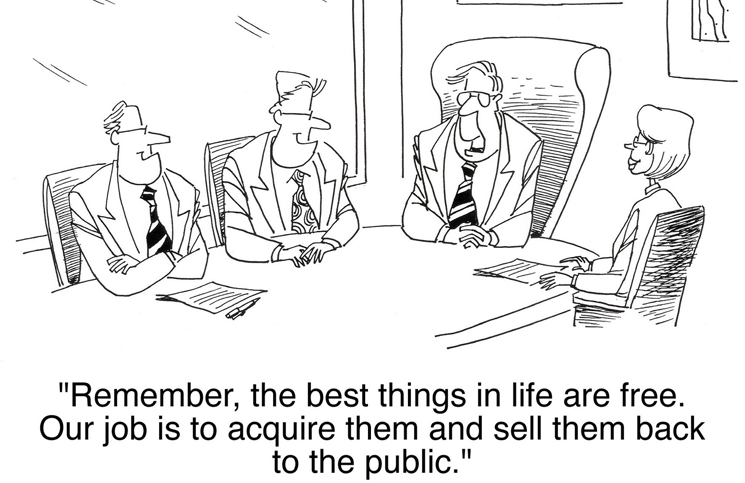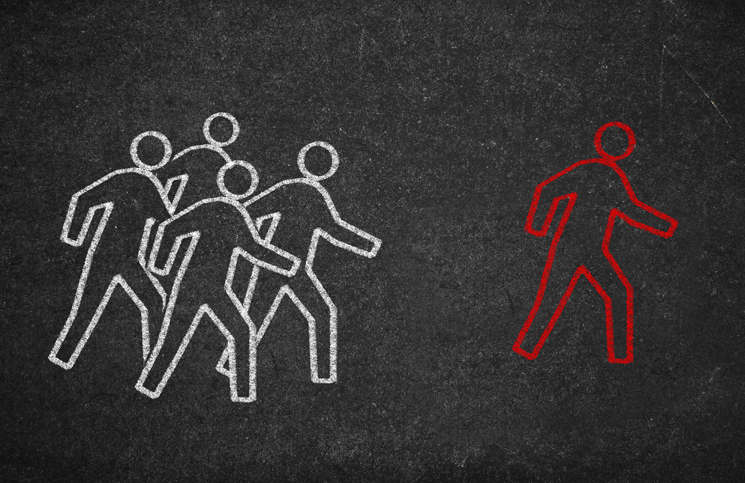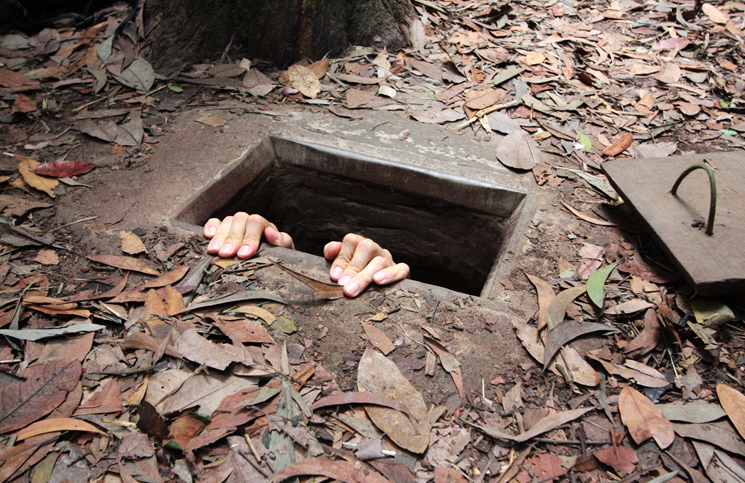It is a standard tactic to position a product, service, or brand, as a transformative problem solver in order to attract the attention of the masses. However, if a business knowingly creates products, services, or environments that are designed to address only the symptoms and manage the pain points (suffering), it isn’t just a mere lack of brand alignment. Failing to to supply the advertised lasting relief, resolution, or change is disingenuous behavior of the highest order. And it’s becoming a common practice.
Over promise, under deliver doesn’t begin to cover it. This is a systemic problem that permeates just about every industry you can think of. It’s unhealthy for you, your staff and your business. These models depend on you buying into several toxic lies in order for them to succeed. In this post we’re going to:
- Share 6 of those lies
- Explore the problems created by them
- Identify 3 business opportunities they create
- Demonstrate how our company takes advantage of those opportunities, (and how you can too)
It’s important to know how these dark arts work so that you can spot them, take appropriate action and if you’re up for it, know how to disrupt their game plan.
Understand The Power of the Dark Side: Snake Oil as a Service (SOaaS)

Whether we’re talking about the pharmaceutical industry, marketing services, (Yelp or SEO, anyone?), cosmetics, digital music, coaching, consulting practices, mental health, you name it, there are plenty of businesses using the dark, codependent models that are producing some really crappy results. They are fundamentally out of alignment with their claims and brand promises and seem pleased as punch to operate in duplicity.
It’s a poisonous, codependent model. And in order for it to succeed and persist, they would have you believe variations of these 6 common lies :
- We’ve got the treatment. The treatment is all there is. We can keep the dragon at bay. Without us, you will perish
- The dragon is real. It’s too big for any mortal to face alone. It requires a legendary hero
- You’re not legendary. Are you? You’re not Heroik. You’re not good enough to solve this problem. You couldn’t possibly solve this problem, on your own or even with anyone else
- Remember, you’re human, you’re small, and barely know anything. We’re big and have been at this for a long time
- You need us to hide your shame, and to keep up with the Jones’
- There is no other way
If you’re like me, these ideas will really piss you off and fire you up. These are the false beliefs proliferated and reinforced by the messaging and underlying support systems around these models. Not only do these models require you to continue to suffer with the problem (hindering your performance as you pay to improve it), they also require that the problem is perceived as too big for you to solve yourself. They must feed the perception of the dragon. In Heroik Culture, we refer to this as painting your dragon (creating a legendary monster from an encounter with a small lizard).
These 6 common lies, keep you in their pipeline, engaged on their terms and under their gun. Are you working with a company like this?
Now, before we get started, let’s establish some ground rules. Here are a few facts:
- This is the information age where you get a “fire hose” of data pointed at you each and every day
- Businesses, media, marketers, individuals, family, friends and pets are endlessly fighting for your attention
- The human brain is much like a computer, but you’re human first, not vulcan, and tend to behave irrationally or “illogically” as Spock would say
- The toxic lies can be hard to spot and filter out
- Your ability to see these lies for what they are must be developed
Why These Lies Are So Toxic

Prolonging Pain and Poor Performance as You Pay
The financial success of these models is tied to keeping the pain points or larger problem alive, so they can continue to manage or service it over the longest possible amount of time. Put another way, for them to succeed (even though you or your company pays based on the promise of a solution result) you must not only continue to suffer, but pay throughout the experience to suffer slightly less.
Promoting a Culture of Emasculation

These lies are so toxic because they promote a culture of emasculation that is already thriving today. These lies leverage your doubts and insecurities, so that you’ll roll over, play victim and pay a hero to save you. Only the white knight can slay the dragon. Only a “true” hero can save the day. Right? In effect, they need to emasculate you, devaluing you, praying upon your insecurities in an effort to make you feel powerless to solve the problem.
Using the Market to Further Devalue You

They’ll also leverage the natural psychological behaviors of a market system. Value is subjective. So the lower the perceived value of an individual, product, service or company, the lower the cost. It’s in the competitive market’s interest to suppress costs and thus devalue people or whatever is adding to costs. The corollary to this is also true, the lower you feel your worth, the higher you’ll perceive the worth of others. So you’ll pay more for solutions that are perceived as more valuable than you or your current position in the market.
Crowdsourcing Collusion

It is a social norm and extension of our market mentality to shame people who see more than “fair” market value in themselves, their brands and products. We devalue and commodotize wherever it serves us to lower costs and elevate our own perceived value. The lesson here is don’t cave in to social pressure simply because others do.
Step By Step Here’s how it works:
- Society’s perception believes that heroes are mythological (special) people, akin to the gods.
- The company positions itself as the hero, the special, experienced, the chosen one, the solution provider and only one who can help.
- That position is reinforced by painting the big audacious challenge (or problem they claim to solve) often overhyping the problem and the impact of their solution.
- The moment you begin to think you can improve your circumstances without them, the company simply poses or implies these questions to you first; Do you believe you’re a “real” hero? What makes you special? What makes you believe you’re capable of solving this problem on your own?
- If that doesn’t trigger your insecurities individually or collectively as an organization, then they extend the question to the larger community to get collusion.
“They think they’re special. They think they are different. They think they can do it themselves. Are they different? Are they better than you?”
The masses in turn (triggered by their own insecurities) try to pull you back down to the ground, put some sense into you, and get you to accept the vendor/outsider as the hero and pony up.
They try to trick you and reinforce the false belief that you are not Heroik, and not capable of great things. They would have you believe that great endeavors, transformation, relief, grace and compassion belong to them; not to yourself and others. They want you to use an app (read, their app) for that. They want you to buy stuff to hide your shame and fears that you’re not good enough.
Locking The Relationship From Fear of Loss

These dark models go further to introduce more problems. When companies knowingly operate with little to no integrity, it instills fear, scarcity and paranoia. So whatever customers they get, they work to lock in that relationship. They use all kinds of tools at their disposal: technology, contractual obligations, etc. Disingenuous businesses breed cultures of insecurity and fear (which in turn, kills trust) forcing them to seek out ways to muzzle employees and shackle disgruntled customers. Again, all of this has unfortunately bcome a more common practice. When your offering is sincere and in alignment with the needs of your market, people don’t need a cage to keep customers around. It’s no easy task to scale and preserve integrity in a large business, let alone extend it to customer experience as well. However, it’s not impossible either.
The arguments we’ve heard defending these practices:
- This is how business works
- This structure is required to develop real solutions, legitimate fixes, cures, and better stuff
- Only a few bad eggs are operating this way
The dark arts and codependent business dynamics lead to business tactics that restrict or hinder freedom and prolong the pain points and suffering (hindering performance and growth). Don’t buy in. This isn’t a few bad eggs. This is a systemic societal problem. The exploitation of businesses is akin to human trafficking (more so if you consider corporations as people).

4 Disruptive Business Opportunities
We see these clunky, underperforming business models, lumbering along with their toxic culture, waiting to be disrupted by better solutions. There are plenty of opportunities for disruptive transformative service providers and problem solving organizations.
- Escaping from these lies and bad business practices – This alone will stop waste, abuse, and increase your opportunities.
- Detoxing toxic cultures – show them better practices and help them transition and gain a competitive edge.
- Fill the need by actually providing working solutions and transformative services. If there’s a systemic problem of the rubber failing to meet the road, there’s a huge opportunity in making that happen across any number of industries. Help businesses grow, versus renting the perception of business growth.
- Disrupt and Liberate – There’s opportunity in liberating people and businesses from dependencies, addictions, and codependent relationships to vendors.
Here’s how Heroik is Taking Advantage of Those Opportunities

It comes down to a more mindful approach – If you’re providing freedom, you’re providing relief. This creates a path to transformation and increased performance and real growth.
- Offer liberation and identify the common codependent players that merely treat symptoms and service problems. Then, reverse engineer their efforts, roundup available alternatives (provide innovative solutions) and disruptive technical solutions that work
- Lead by example and encourage organizations to SWIPE from our culture. S.W.I.P.E. (Steal With Integrity and Pride Everyday). We’re that confident in our practices and integrity
- Instill confidence by refining brands, leaders, teams, cultures and organizations across disciplines
- Provide Freedom as a product – Removing codependence and swapping it out for interdependence and collaboration. We position on preserving independence and ensure our clients can grow forth with or without us. What happens? We have stronger relationships with clients based on deep trust, and equal commitment to practicing with integrity
- Rely on operational integrity, provide flexibility and open space to explore and to build trust
- Focus R&D on disrupting codependent models for 3 reasons:
- Alignment with Heroik culture
- Competitors are addicted to these bad business practices
- There are very few, true competitors solving problems or providing growth engines. How many Heroik firms do you know?
This is what Heroik is all about. We’re building a movement; an inspirational brand and a socially conscious business based on reminding individuals, leaders, teams, organizations, brands and the world, that they can be Heroik if they choose. Many of the cost centers, problems, and pain points can be resolved, solved and/or transformed into larger opportunities, revenue streams, insights and growth engines. We encourage you to pull from our playbook and leverage these opportunities in your organization as well.





0 Comments